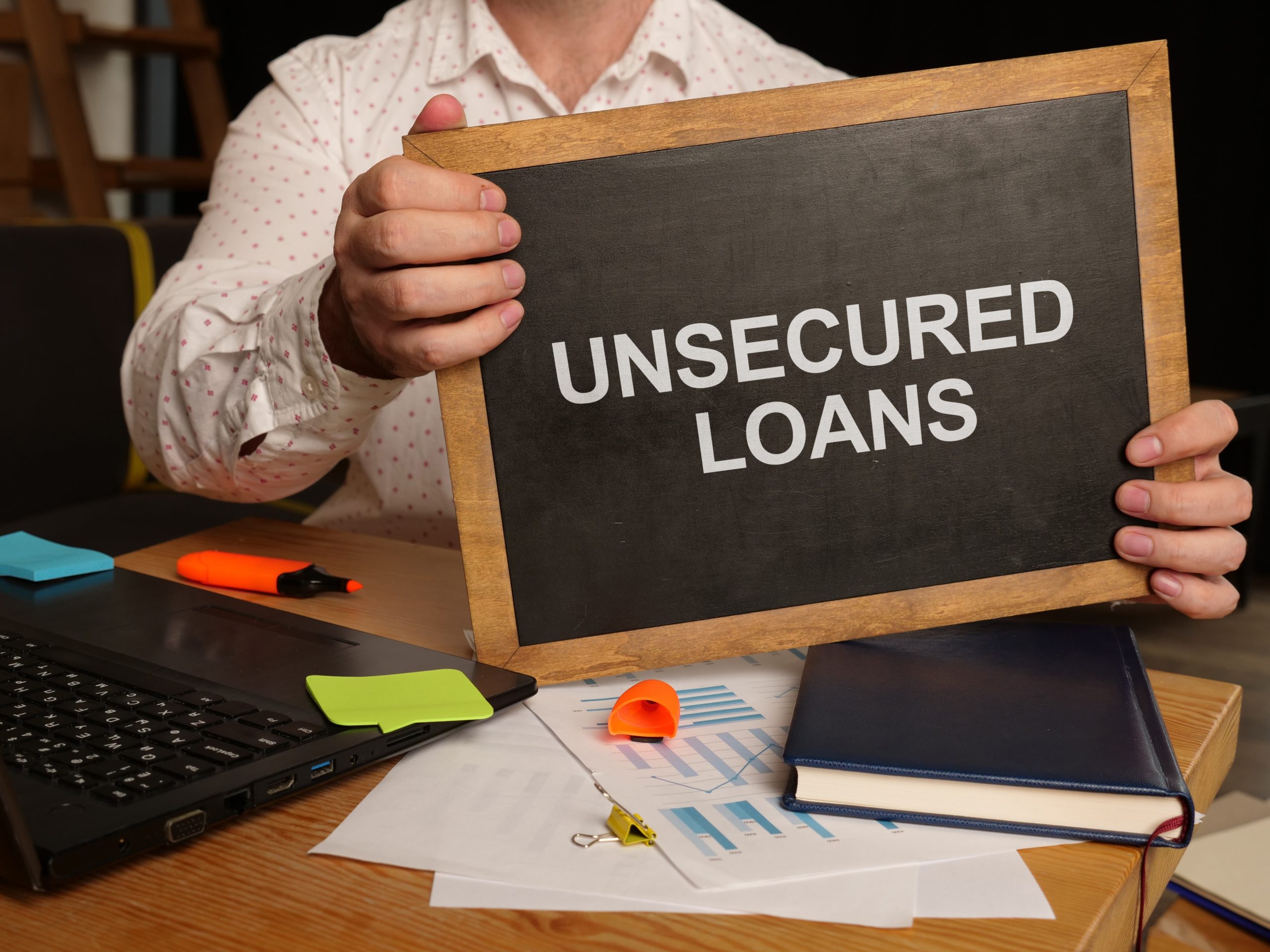Key Takeaways:
Unsecured loans can provide quick access to funds for individuals without collateral. They are typically fixed-rate loans offered by direct lenders, allowing borrowers to predict their monthly payments. However, borrowers should know that unsecured loans are not designed to help build or improve credit scores.
Table of Contents:
- Introduction
- What Are Unsecured Loans?
- How Unsecured Loans Work
- Eligibility and Requirements
- Types of Unsecured Loans
- Benefits of Unsecured Loans
- Limitations of Unsecured Loans
- Conclusion
Introduction
In personal finance, loans are crucial in helping individuals manage their financial needs effectively. Whether it’s consolidating debt, covering unexpected expenses, or funding significant purchases, loans can be a critical economic resource. Specifically, unsecured loans present a popular option for many individuals. But what exactly are these loans, and are they the right choice for you? This article delves into unsecured loans’ workings, benefits, limitations, and essential considerations for prospective borrowers.
What Are Unsecured Loans?
Unsecured loans are personal finance products that allow individuals to borrow money without pledging any collateral. Unlike secured loans, which require borrowers to offer an asset (like a house or car) to back the loan, unsecured loans depend solely on the borrower’s creditworthiness. This emphasizes credit checks and other eligibility factors, such as employment status and income levels. Some reputable online direct lenders, like MaxLend, specialize in providing unsecured loans directly to individuals, making this funding type highly accessible without intermediaries. With these loans, borrowers benefit from the convenience of applying online and receiving funds speedily.
How Unsecured Loans Work
When you apply for an unsecured loan, the lender will assess your eligibility based on your credit score, income, and employment status. To qualify, these loans often have set requirements, such as a minimum FICO score. As the loan is unsecured, collateral is unnecessary, simplifying the application process. Once approved, the loan is disbursed as a lump sum, and repayments, typically fixed-rate, are made in installments over a predetermined period. Borrowers should note that terms and interest rates may vary depending on their credit history and the lender’s policies. Furthermore, direct lenders providing these loans offer a streamlined process, eliminating the need for intermediaries.
Eligibility and Requirements
To qualify for an unsecured loan, one must generally meet specific criteria set by the lender. A satisfactory credit score is often a primary requirement, as lenders use it to gauge the risk the borrower presents. Lenders typically prefer applicants with a stable employment history and a reliable source of income. These factors play a crucial role in the approval process. Since these loans do not need collateral, lenders rely heavily on evaluating the borrower’s credit risk. Notably, applicants cannot apply in person or through traditional banks or credit unions, as these loans are exclusively available online through specific direct lenders. If you need quick financial assistance, consider applying online for a MaxLend loan, which offers a simple and convenient way to access your funds.
Types of Unsecured Loans
Unsecured loans come in various forms to cater to different financial needs. Common types include personal loans, installment loans, cash loans, and payday loan alternatives. Personal loans are versatile and can be used for various purposes like home renovations, medical bills, or vacations. Installment loans, another popular type, involve borrowing a fixed amount and repaying it over a set period through regular installments. Cash loans offer a quick injection of funds, often for immediate expenses. Payday loan alternatives are short-term loans intended as an option besides traditional payday loans, providing more manageable repayment terms.
Benefits of Unsecured Loans
Unsecured loans offer numerous advantages that make them attractive to borrowers. One of the primary benefits is the lack of collateral requirement, which eliminates the risk of losing personal assets. Because these loans often come with fixed interest rates, borrowers can plan their budget effectively with predictable monthly payments. Additionally, the application process for unsecured loans is typically fast and straightforward, with many direct lenders offering quick approvals and disbursals. The online nature of these loans ensures convenience, as applicants can apply anytime, anywhere, without visiting a physical branch.
Limitations of Unsecured Loans
While unsecured loans are advantageous in many ways, they have limitations. Since they do not require collateral, lenders may charge higher interest rates than secured loans to mitigate the risk. Additionally, unsecured loans do not help build or improve one’s credit score, as they are not intended for credit-building purposes. Borrowers looking to enhance their credit profiles should consider other loan products specifically designed for that objective. Furthermore, unsecured loans are only available to individuals and cannot be used for business financing. Lastly, it is essential to note that variable-rate loans are not an option with unsecured loans, as they only offer fixed-rate terms.
Conclusion
Unsecured loans present a viable financial solution for individuals needing funds without the risk of asset collateral. They offer flexibility that suits various financial needs by providing immediate access to cash with straightforward terms and conditions. These loans are ideal for those with a reliable credit history and require a streamlined borrowing process. However, potential borrowers should always consider their economic situation, the loan terms, and alternative solutions if their goal is to build or improve credit. By understanding the benefits and limitations, individuals can make informed decisions about whether unsecured loans fit their financial needs.



